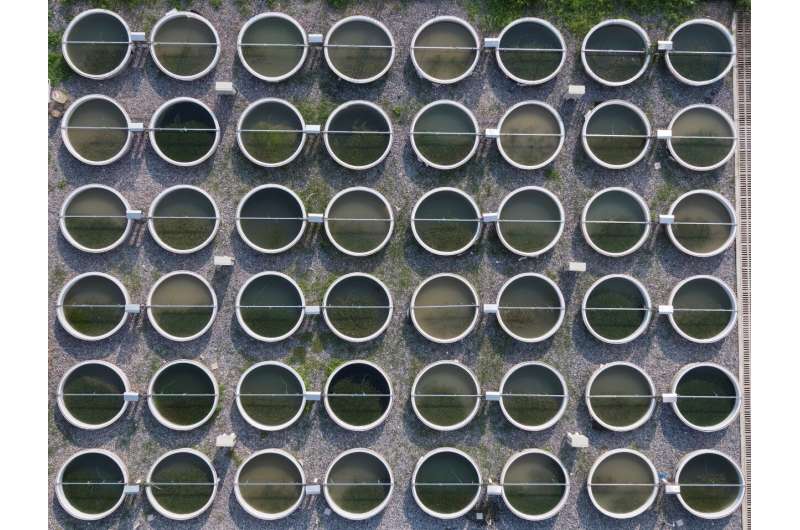Climate warming and benthivorous fish interactively lead to regime shift in freshwater ecosystems

Shallow lake ecosystems can shift from a clear-water state dominated by macrophytes (good state) to a turbid state dominated by phytoplankton (nuisance state), with loss of key functions and services. The alternative states shift could be due to multiple stressors, such as climate change, eutrophication and alteration in fish communities. However, whether climate warming with other stressors interactively affect macrophytes and trigger regime shifts remains unexplored.
A research group led by Prof. Xu Jun from the Institute of Hydrobiology (IHB) of the Chinese Academy of Sciences demonstrated that warming and benthivorous fish can interactively trigger a regime shift from clear-water conditions dominated by submerged or floating/floating-leaved macrophytes to a turbid state in shallow aquatic ecosystems. The results were published in the journal Journal of Applied Ecology.
In this study, the researchers used 24 climate change simulation mesocosms (2500 L each) to test the single and combined effects of climate warming (+4.5°C) and common carp Cyprinus carpio on phytoplankton, periphyton, turbidity and the abundance of macrophytes.
They first analyzed the impacts of warming and fish on the growth of macrophytes, and found that warming enhanced the negative impacts of fish on the abundance of the early-season submerged macrophyte, and warming reversed the impacts of fish on the floating-leaved macrophyte, leading to an overall macrophyte decline.
Further structural equation models analysis showed that with the decline of macrophytes, water turbidity and phytoplankton growth significantly increased, resulting in a turbid state in the systems.
These results confirmed that benthivorous fish can adversely affect macrophytes through physical disturbance, cascading effects on turbidity, suspended and attached algae (phytoplankton and periphyton) and direct consumption, and such impacts were enhanced under climate warming.
Prof. Xu's team provides the first experimental evidence for a warming-induced regime shift in shallow aquatic ecosystems, which has implications for managing and restoring aquatic ecosystem.
In light of their findings, lowering nutrient loading and other measures to reduce the abundance of benthivorous fish, e.g., fish removal and piscivorous fish restocking, may become increasingly important for the management of shallow lakes under global climate change.
More information: Peiyu Zhang et al, Warming alters juvenile carp effects on macrophytes resulting in a shift to turbid conditions in freshwater mesocosms, Journal of Applied Ecology (2021). DOI: 10.1111/1365-2664.14040
Journal information: Journal of Applied Ecology
Provided by Chinese Academy of Sciences





















